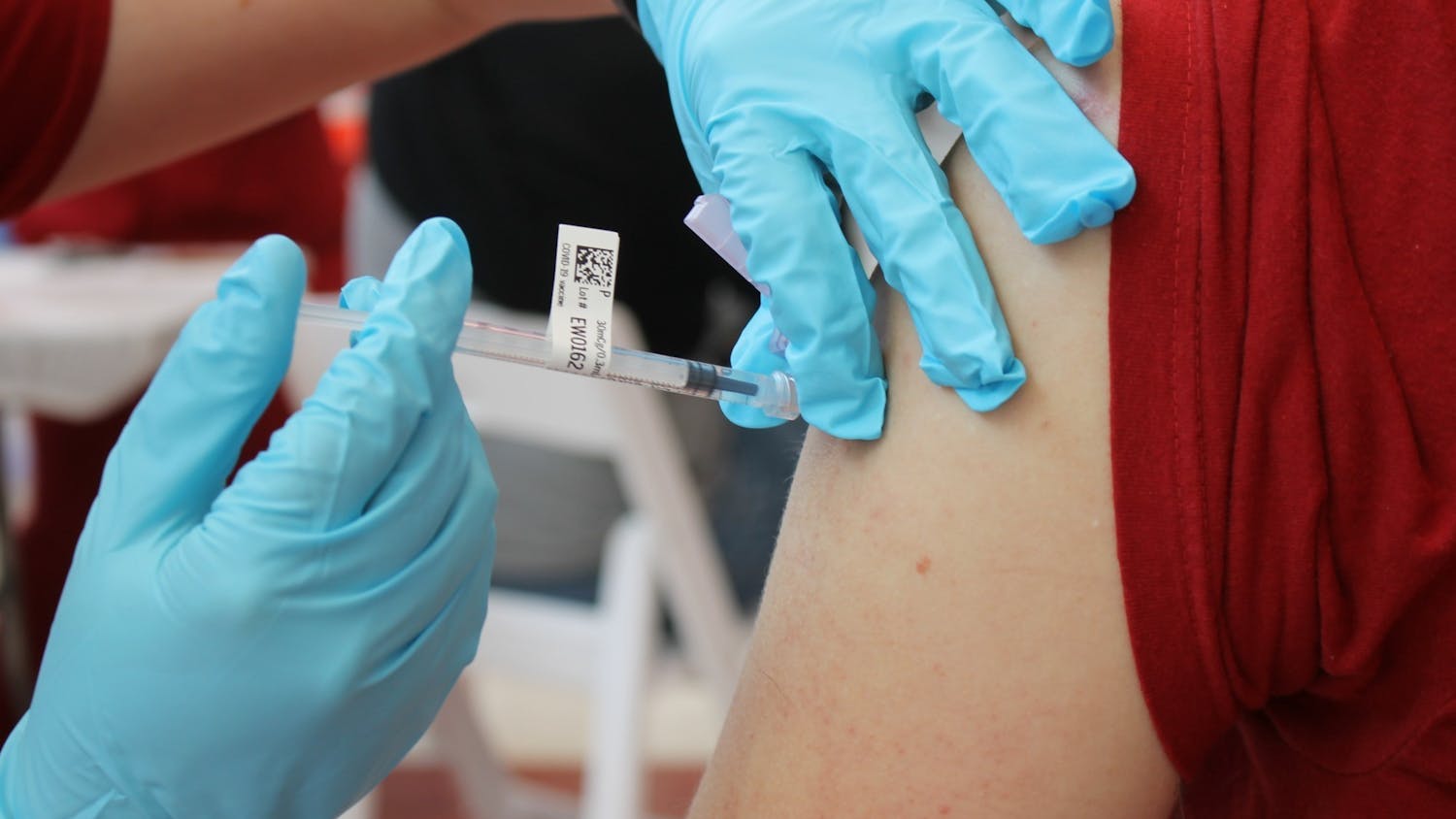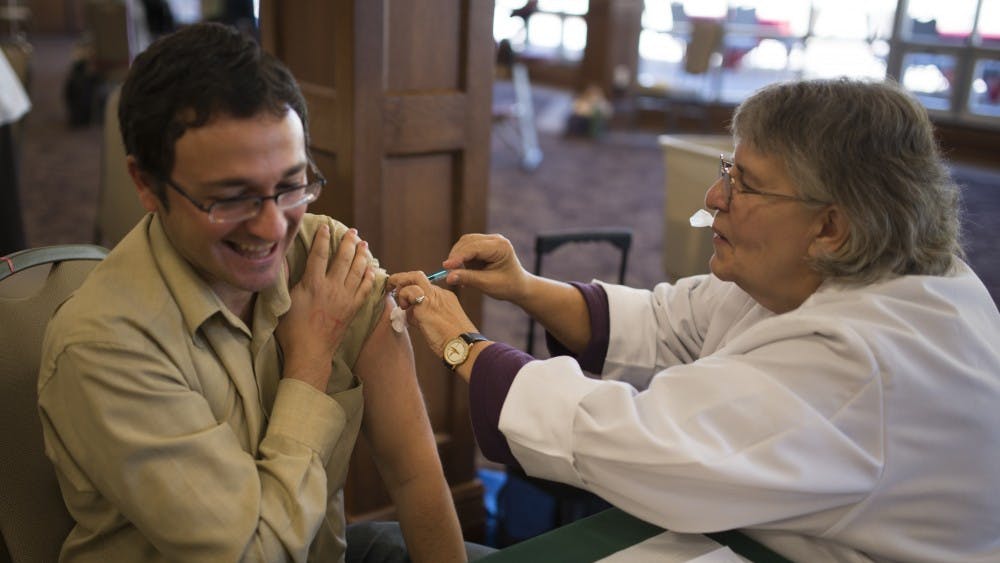QUESTION: My new girlfriend tells me that she started exploring her genitalia at quite a young age and that she stimulated her clitoris frequently between the ages of 12 to 18. She now (at age 21) thinks that her clitoris is not giving her the normal sensations when it is stimulated (i.e., she wonders if it has possibly been de-sensitized by the earlier activity). She has not yet managed to have an orgasm through masturbation, either alone or with a partner, and she has never had penetrative sex. She says that phone sex or erotic emails gets her very aroused but that she finds it hard to become aroused when being intimate in the bedroom. Can you advise on how likely it is that her clitoris has been physically damaged? Obviously as her boyfriend and someone who cares deeply about her, I would like her to experience orgasm with me and will do anything possible to facilitate this. What can we do?\nANSWER: Based on reports from parents, teachers and other caregivers, research suggests that most young children (boys and girls) touch their own genitals as part of typical child development and exploration. In one study, in which scientists asked college students to recall their experiences during childhood, approximately 40% of women and men remembered stimulating their own genitals – not just out of curiosity, but for the sake of pleasure – prior to puberty. Many teenagers stimulate their own genitals, as your girlfriend recalls doing during the ages of 12 to 18. Typical self-masturbation at any age is extremely unlikely to cause any lasting damage to the genitals. In fact, masturbation experience often helps men and women learn more about what feels good, comfortable, and pleasurable for their body.\nMost men and women first experience orgasm during masturbation alone, perhaps because it is both an extremely common activity and because there is no pressure to please a partner. That said, many women do not experience orgasm until they are in their twenties, thirties or are older. There are many reasons why women often difficult to feel aroused or to experience orgasm when being intimate with a partner. Some of these reasons have to do with pressure that women place on themselves to have an orgasm, pressure they may feel from a partner, impatience (it can take a long time – sometimes 30 minutes or an hour or more – for women to orgasm), difficulty relaxing or body image. Often women find it difficult to feel aroused or to orgasm because they have received inaccurate or incomplete information about sexuality and are consequently trying things that are not that effective (e.g., only masturbating for a few minutes, or are trying to orgasm through penile-vaginal intercourse which is possible but less likely than more direct clitoral stimulation).\nIf your girlfriend has difficulty feeling aroused with you, try slowing things down and making sure that you are both comfortable with your sexual choices. Talk with each other about what feels good and what doesn’t, how she feels during sexual activity with you (e.g., relaxed, pressured, anxious, excited, etc), and try to listen without judging or jumping to conclusions. Your relationship, as you mentioned, is new and it can take time to get to know each other, bond and feel comfortable in order for many women (and men) to feel aroused and ready for sexual sharing. While it is sweet of you to want her to enjoy sexual activity with you, try not to make orgasm so much of a goal that it ends up being a source of pressure for your girlfriend. Orgasm, after all, is only one aspect of sexuality. Far more of a couple’s time is typically spent in day to day bonding as well as sexual play and enjoyment, rather than sexual orgasm (which only lasts a matter of seconds).\nIt is possible that your girlfriend has noticed a change in clitoral stimulation; however that does not mean that her clitoris is damaged or has been desensitized by years of “use”. Sometimes body sensations simply feel different at different times of life. While your girlfriend, at age 21, is by no means “old”, her body is different than it likely was at age 12 or 13 given the hormonal changes that occur around the time of puberty, and then change again as young women and men leave puberty behind. Sensation may be affected by many things including age, hormones, relaxation and medication use (such as birth control pills and antidepressants) and mood. If she is uncertain or has questions about her health or body sensations, she should check in with her healthcare provider. \nHowever, assuming she is in good health, she may be able to better focus on sexual pleasure by exploring her body and what its sensations are like now (regardless of what they used to be like), and how they will continue to change not only over time and with age, but also depending on the type of stimulation that is used. It may be helpful to remove orgasm as the goal for now and to instead focus on sexual pleasure, intimacy, bonding and enjoyment of each other. If this is something your girlfriend wants to learn more about, the book Becoming Orgasmic: A Sexual and Personal Growth Book for Women may be useful.
Kinsey Confidential
Get stories like this in your inbox
Subscribe





